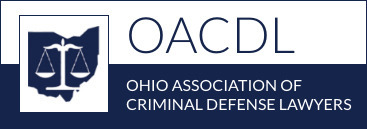Complete Story
State v. Jones: Improper Preemptory Strike Allocation is not Structural Error
By: Megan Patituce
www.patitucelaw.com/Megan-Patituce
The state’s improper use of a waived preemptory strike used to remove a defense-friendly prospective juror is not a structural error and is, therefore, subject to a harmless error standard of review. In State v. Jones, 2020-Ohio-3051, the trial court permitted, over defense objection, the state to use a preemptory strike out-of-sequence. On appeal, the state conceded that the use of the preemptory strike had been in error but argued that the error was not structural in nature.
The Ohio Supreme Court reviewed structural errors and the consequences thereof, explaining that those constitutional defects “affect the framework within which the trial proceeds, rather than simply [being] an error in the trial process itself.” Structural error is interpreted narrowly in the context of well-defined constitutional rights such as the right to counsel or the right to a public trial.
The Court determined that this was a “good-faith mistake” that did not violate basic rights guaranteed by the Constitution. As such, the error was not structural and was therefore subject to a harmless error review. The Court reiterated that harmless-error review places the burden upon the state, not the defendant, to demonstrate that the outcome was not affected by the error.
In review, the Court determined that the colloquy with the juror in question did not demonstrate that the juror would have acquitted Jones. This was true especially in light of the fact that the Court found the evidence against Jones to be “overwhelming.” As such, the Court found that Jones has suffered no actual prejudice.
The misallocation of preemptory strikes does not constitute a constitutional error, but is, rather, a trial error. Where such an error exists, courts will review under a harmless error standard, in which the state bears the burden of demonstrating no actual prejudice. Given this standard, it is unlikely that preemptory allocation will ever constitute reversible error.

